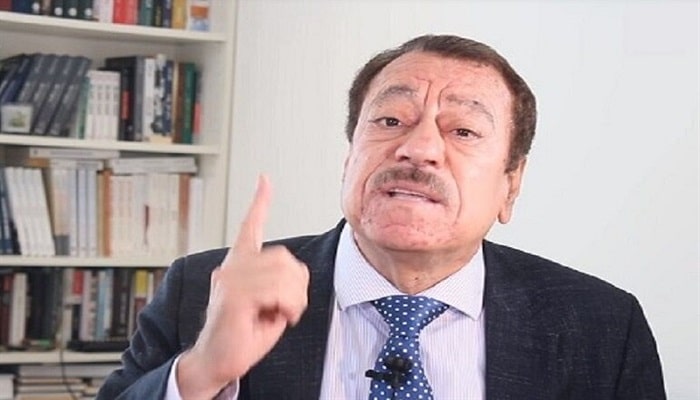PNN – Abdel Bari Atwan, editor-in-chief of the transregional daily Rai al-Youm and a well-known Palestinian political analyst, devoted his latest editorial to the Israeli regime’s recent criminal decision to approve a law permitting the execution of Palestinian prisoners. He wrote that this article is not meant to recount the massacre of 70,000 people in Gaza or the wounding of over 200,000 others—half of them women and children—nor to detail the destruction of 95 percent of the enclave’s buildings and homes. Rather, he said, its purpose is to discuss the severe physical torture and sexual abuse inflicted on Palestinian detainees—both men and women—in Israeli prisons.
The goals behind Israel’s approval of the death-penalty bill for Palestinian prisoners
Atwan noted that the immediate context is the bill passed last Monday in the Israeli Knesset, which mandates the death penalty for Palestinian prisoners convicted of so-called “terrorist” acts in which Israelis are killed. The decision is expected to be implemented soon.
The Palestinian analyst continued by saying that many people have wondered why the Israeli regime refrained from executing Palestinian prisoners for the past 77 years. Some may have assumed that this reflected Israel’s “civilized” or “humanitarian” nature, or perhaps its supposedly “democratic character.” In reality, Atwan argued, the truth is entirely different—and can be summarized in one sentence: Israel’s avoidance of executing Palestinian prisoners was a calculated deception and manipulation.
The article continues by arguing that Israel’s previous refusal to execute Palestinian prisoners was part of a long-standing strategy based on the belief that allowing a captured fighter to stay alive would eventually push him toward surrender and abandoning the path of resistance. According to this logic, the fewer fighters sought martyrdom, the fewer attacks and Israeli casualties there would be. But if a fighter knows he will ultimately be executed, he will fight to the last moment and try to kill as many Israelis as possible before his death.
Read more:
Hamas: Law to execute Palestinian prisoners is an attempt to legalize mass murder
Atwan writes that after the documented physical and psychological torture of Palestinian prisoners—along with the brutal abuse and sexual assaults they have suffered—Israel no longer needs a formal law to execute them. He notes that the torture and abuse revealed in recent evidence, including a video released by Israeli military prosecutor Yifat Tomer, now push resistance fighters to fight until martyrdom to avoid arrest, torture, and assault—abuses he describes as “far more dangerous and painful than death.”
According to the editorial, the Palestinian Centre for Human Rights recently documented the testimony of a female Palestinian detainee held at the notorious Sde Teiman facility. She reported being raped four times by Israeli guards and left naked in her cell. Her captors filmed the assaults and threatened to publish the footage on social media.
Atwan adds that an 18‑year‑old detainee from Gaza said Israeli soldiers brutally tortured and sexually assaulted him as well. He writes that similar accounts have been repeated by many prisoners, and that Israeli forces even set large attack dogs on Palestinian detainees.
A new wave of deadly anti-Israeli operations may be coming
The analyst argues that the Israeli Knesset will indeed implement the death‑penalty law for Palestinian prisoners—and that, in practice, this policy has long been applied informally on the ground. He asks whether the ongoing genocide and starvation campaign in Gaza is not already the clearest example of this policy in action, and whether the world truly needs any more evidence of Palestinians being executed in the field over the past two years in Gaza and the West Bank.
In closing, Atwan warns that this racist and brutal law may trigger the return of the kinds of deadly operations Palestinians carried out in the 1990s—in streets, cafés, restaurants, bus stops, and train stations in Tel Aviv, Haifa, Jerusalem, Beersheba, and anywhere Israeli soldiers and settlers are present. He concludes that the torture and sexual violence inflicted on Palestinian prisoners will only accelerate the revival of such operations.

